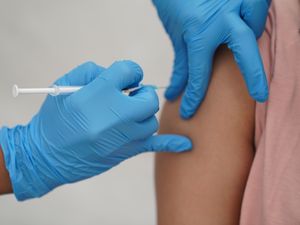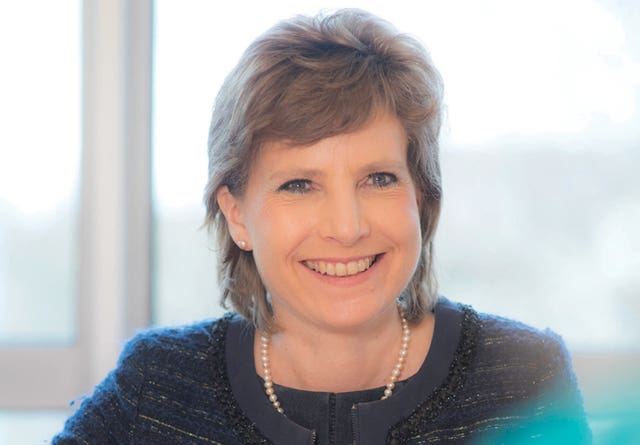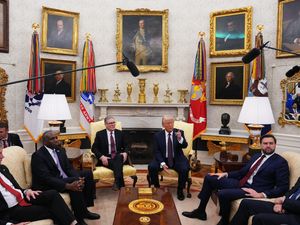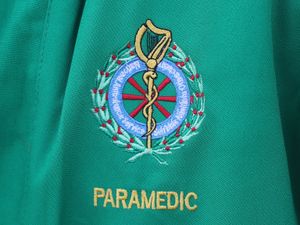Call to axe mandatory vaccines for frontline staff amid ‘paralysing’ need
Social care boss among those asking to delay the deadline for frontline NHS and wider social care staff to have their first jab.

Workforce shortages are “paralysing” health and social care services and the requirement for frontline staff to be vaccinated against coronavirus must be abandoned, a social care boss has warned.
The Homecare Association said “further serious harm” is likely to come to older and disabled people and their families if between 15 and 20% of home care staff cannot work because they are unvaccinated.
It said the Government has “seriously misjudged” the balance between the mitigated risk of infection and the risk of people going without vital care.
But Downing Street said there were no plans to change the implementation dates for mandatory Covid vaccinations.
The Homecare Association said it is concerned that the safety and wellbeing of older and disabled people will be “dangerously compromised”.
It is calling for the Government to withdraw the regulations now – before employers start serving notice on unvaccinated employees.
Chief executive Dr Jane Townson said: “All along, we have strongly supported vaccination against Covid-19, as there is clear evidence it helps to save lives.
“At the same time, we have consistently argued that persuasion would likely be more successful than compulsion in achieving high vaccine uptake, especially among those with genuine fears.
“And we have repeatedly stressed the need to balance the mitigated risk of infection with the risk of older and disabled people going without vital care at home.
“In pressing ahead with regulations requiring vaccination as a condition of deployment in CQC-regulated wider care settings, including homecare, we believe the Government has seriously misjudged this balance of risk.”
Two vaccine doses for care home staff in England have been mandatory as a condition of deployment since November.
The new policy affects frontline NHS and wider social care staff working in regulated settings in England.
The deadline for these workers to have their first vaccine doses is February 3, and they must be double jabbed before the policy kicks in on April 1.
There have been protests and calls for the policy to be delayed, amid fears that it could force thousands of frontline workers to leave their roles at a time when patient demand is high.
The Prime Minister’s official spokesman said: “It remains the case that we believe that mandatory vaccination is the right approach and there are no plans to change the implementation dates for this policy.
“Health and social care workers look after the most vulnerable people in society who would face serious health consequences if exposed to the virus, and obviously having a vaccination is also a way to ensure fewer staff absences, so a way to further help tackle some of the backlogs we’ve seen caused by staff absences when vaccinations weren’t available.”

He said: “We wouldn’t want to see a single member of NHS staff lost because they weren’t willing to get the vaccination that has been proven to be safe around the world.”
The comments follow a report over the weekend, suggesting that compulsory vaccines for NHS workers would be delayed for six months under 11th-hour plans being considered by Boris Johnson.
Meanwhile the British Medical Association has called for an “urgent impact assessment” on how the policy will affect staffing numbers.
A spokesman said: “With more than 99,000 vacancies in the NHS in England alone, to lose more than 50,000 further staff who are yet to receive their first vaccine would be disastrous and would have a devastating effect on patient care when the health service is under the most intense pressure it’s been in modern history.
“We urgently need to see an updated impact assessment on how this policy will affect staffing numbers.
“Ministers must not pursue a policy that risks leaving services untenable, and putting patients at risk.”
On Monday afternoon MPs will debate a petition, which has received more than 217,000 signatures, calling for it to made illegal for any employer to mandate vaccination for its employees.
Latest figures from NHS England, covering up to January 16, suggest that 13.1% of domiciliary care staff in registered settings (more than 53,000 staff) and 5% of NHS staff (more than 80,000) staff have not had their first dose.
Some 18.9% of domiciliary care staff (77,080 staff) have not been recorded as having received their second dose.
Some of these staff will be exempt.
The Government’s impact assessment, published in November when the policy was announced, estimates that 73,000 NHS staff and 35,000 social care staff will remain unvaccinated by the time the policy comes into force.





